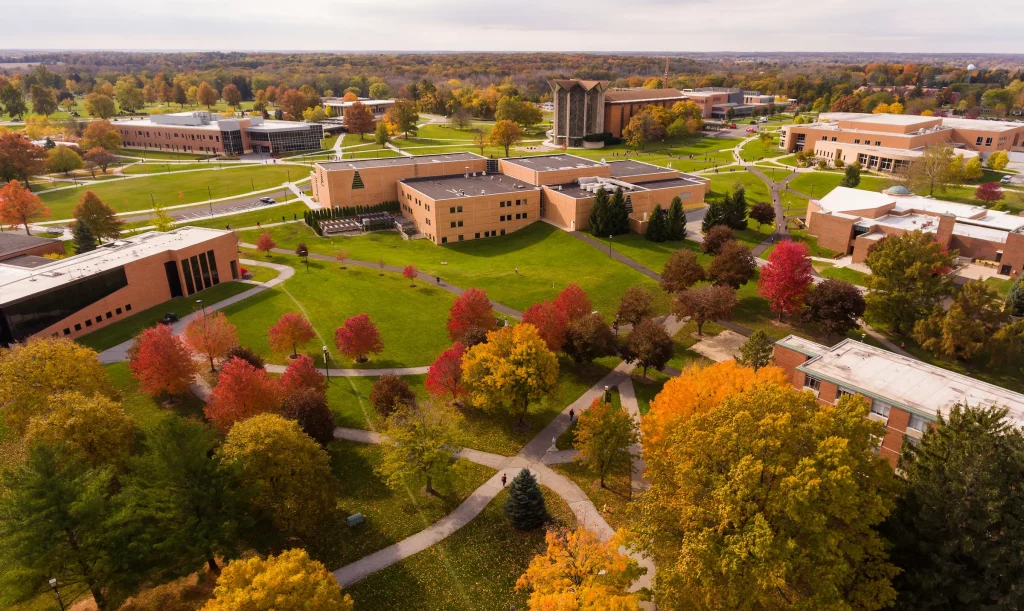Tourism in a Changing World
Musa Pinar, Ph.D., professor of marketing and Paul H. Brandt Professor of Business at Valparaiso University, was asked to bring his unique perspective on marketing to a panel at The Turkish Association of Tourism Academics’ fourth Managing Tourism Across Continents Conference (MTCON). The event took place in Istanbul, Turkey, from March 15-18, with Professor Pinar acting as a moderator at March 16th’s Moving Tourism Forward Panel.
“The goal of the conference was to bring people together from across the world, Australia, Europe, South America, the U.S., to discuss how to expand tourism across continents,” Professor Pinar says.
Professor Pinar is widely known for his work covering various areas of marketing and branding, including the international tourism industry. In 2022, his MBA class’s project on medical tourism in the U.S. earned publication in both English and Turkish by the Medical Tourism Association of Turkey. Its success led Professor Pinar himself to appear in an hour panel discussion on live Turkish television to discuss the topic, and his work on gendered tourism has produced the most-cited paper on the subject in current academia.
At MTCON, Professor Pinar was joined by a wide variety of international experts hailing from Taiwan, Spain, the U.S., and Turkey in the fields of academia, technology, and business. Three of the topics of discussion were tourism as it related to age demographics, technology, and the post-COVID-19 environment.
“In Turkey, every tourism area is related to young people,” says Professor Pinar. “Sun, beach, partying, etc. But I said we have an older population now in Europe, Japan, and the U.S. is getting there. How do we appeal to them? They don’t want to party like 18 to 30 year olds.”
Professor Pinar predicts that tourism for the elderly is set to become a growing industry in the near future, and places like Turkey, where the dollar and euro can be stretched much further than at home, are prime areas to see the benefits.
While rapid changes in technology may play a part in changing the tourism industry, Professor Pinar emphasizes that what has always made the real difference, and what will continue to make the difference, is having excellent people providing the service which delights the tourists.
“Technology is copied by every tourism destination,” Professor Pinar says. “Therefore, you’re all on the same page. Differentiation comes from the people who provide an awesome service. If you have great people at your destination providing excellent service, it can’t be copied because it requires copying people — which is not possible yet!”
While technological progress can always be measured by new hardware and updated software, Professor Pinar believes that the best way to create better employees is through education. Carefully selecting the right people, giving them the proper training and motivation, and rewarding those who perform well will, in his opinion, have more lasting results than copying the latest technology would yield alone.
“Sometimes we think technology is the end result. No, technology is a means to an end, Professor Pinar says. “Technology is a tool for people providing the service; nothing beats the smiling face,” he adds.
That is not to say that advances in technology will have no impact on the tourism industry. As more and more information becomes easily available through apps and websites, the expectations of tourists when they arrive at a new destination will be different from those who came in the past, and people working in the industry need to be prepared to meet that expectation through internal branding; the hottest area of services marketing.
“Higher expectations mean you better deliver with your people, and that is a challenge,” says Professor Pinar.
That challenge could be rapidly approaching. While the number of tourists partaking in international travel have not reached pre-pandemic levels, relaxing restrictions and health requirements are opening doors for populations eager to go out and have new experiences.
“A lot of people are coming back. Many felt boxed in and are now ready to get out and travel,” says Professor Pinar.
Regardless of changes in demographics, technology, and numbers, Professor Pinar believes that there are ultimately three things that make a brand successful, whether in the field of tourism or anywhere else.
“In branding, you must have differentiation, relevance, and trust,” Professor Pinar says. “If you don’t have those three things, you cannot build a destination brand, or any brand.”
In addition to participating in MTCON, Professor Pinar was able to visit family and friends, and visited a major Turkish banking headquarters where, in January of 2023 he had conducted three separate virtual seminars on marketing, branding, and services branding to bank brand managers in the entirety of Turkey. At the headquarters, he met with top people in the organization and gave a two-hour presentation and Q&A session.
“I believe I represented Valparaiso University very well,” he says.

